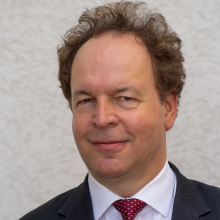Project work
Project work as a form of learning
Project work is a good opportunity for students to deal intensively with complex topics and to test themselves in a team. A task has to be solved as a group within a limited time. However, the group is only presented with a specific problem area - the exact definition of 'what the exact problem is' and 'which solution strategy should be used to approach the problem' is already part of the group's remit. Constructive discussions within the group regarding the structural approach are part of the desired group experience.It is important to have a good mix of skills that the students of the different disciplines 'bring with them' through their education. By offering participation to students of all disciplines, the basis of the knowledge and skills brought in is broadened even further. The aim is to make the students aware of the innovation opportunities for the group through the creativity of the individual.Within the project work offered, new fields of activity are addressed each time. For example, the project groups in the project work Man-House-Environment have already dealt with topics such as "Living and working in the year 2050", "Sense and nonsense of building automation" and "Potentials of renovating old buildings", in each case against the background of the associated overall energy consideration as well as the resulting energy demand and energy supply structures.
Rational use of energy
| No. (lt.VV): | |
| Study programme: | Elective subject - WING: Interdisciplinary Ecology Project |
| Title: | Rational use of energy |
| Lecturer: | Dirk Prior Prof. Dr.-Ing. Stefan Krauter |
The individual assignment, the time schedule of the course and the date of the preliminary meeting will be sent to all participants registered in Paul in due time!
Kurzbeschreibung / Short Description |
|
Contents |
The course Rational Energy Use deals with the optimisation of energy use in the production, use and disposal of goods, the use of energy-related services in the broadest sense and the mediation strategies for optimising energy-relevant behaviour of decision-makers and end consumers. - |
Lernergebnisse und Kompetenzen / Learning outcomes and competences |
Fachkompetenz / Domain competence:
Interdisciplinary competences / Key qualifications:
|
Methodical implementation / Implementation |
On the basis of practice-related company case studies, students acquire the ability to analyse complex interrelationships between economy, ecology, |
Energy supply structures for the future
| No. (lt.VV): | |
| Course of study: | Elective subject (HI/HII) - WING: Interdisciplinary Ecology Project - Winter semester |
| Title: | Energy supply structures of the future - potentials and risks |
| Lecturer: | Prof. Dr.-Ing. Stefan Krauter NN |
Dates
The project work takes place in the winter semester.
Participation in the preliminary meeting is compulsory!
--------------------------------------------------------------------------------------------
The project work "Energy supply structures of the future" will take place in WS.
The attendance at this preliminary meeting is mandatory!
--------------------------------------------------------------------------------------------
Kurzbeschreibung / Short Description |
Today's energy supply structures and the associated risks and problems for the future. Sustainable development: between an end in itself and securing our existence. First problem-solving approaches and the associated difficulties. The path from a centrally managed to a decentrally oriented energy supply. Today's energy supply structures; their related risks and problems for the future. Sustainable development: between itself purpose and securing our existence. First approaches to problem solving and their associated difficulties. The path from a centrally managed energy supply towards a decentralized energy supply. |
Inhalt / Contents |
The course "Energy supply structures of the future" deals with the changing demands on energy transmission systems due to the expected changes in the feed-in structure. In addition, it focuses on the increased interaction between energy demand and energy supply elements as well as possibilities of energy storage. The course "Energy supply structures of the future" treated the changing requirements of the energy transmission systems due to the expected change in the feed structure. Furthermore the enhanced interaction between energy demand and supply elements as well as energy storage options are taken into focus. |
Lernergebnisse und Kompetenzen / Learning outcomes and competences |
Technical competences
Interdisciplinary competences
Professional Competence
Soft Skills Another target of this course is to intensify the project work in small groups, followed by presentation of the results and the associated promotion of core competencies. |
Methodical implementation |
As part of the course energy supply structures of the future, which is offered in the form of group project work, students are to face a previously unfamiliar subject area in a short time in a team. As a part of this course energy supply structures for the future, students should integrate in an unknown team and treat a not previously addressed topic in a short time. |

Head - Sustainable Energy Concepts for Energy Transition.
Office: N1.110
Phone: +49 5251 60-2301
E-mail: stefan.krauter@uni-paderborn.de
Office hours:
Tuesdays 9:45 -10:45 via ZOOM:
https://uni-paderborn-de.zoom-x.de/j/65975717475

Energiewirtschaft und Energieversorgung / Gesamtenergetische Bilanzierungen / Rationeller Energieeinsatz und Regenerative Energien
Office: N1.127
Phone: +49 5251 60-2307
E-mail: dirk.prior@uni-paderborn.de
Office hours:
Jederzeit nach Vereinbarung
